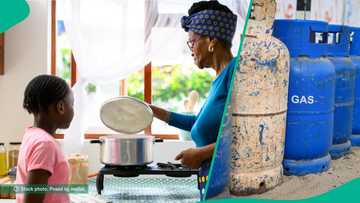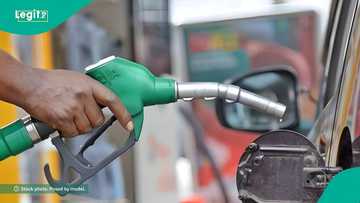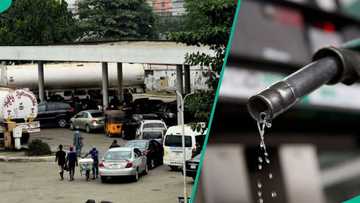Cooking Gas Scarcity Hits Major Cities as Prices Surge Over 80%, Dealers Blame Dangote Refinery
- Lagos and major cities across Nigeria are experiencing an acute scarcity of liquified natural gas (LPG), known as cooking gas
- Dealers disclosed that the halt in sales by the Dangote Refinery has resulted in both price hikes and scarcity nationwide
- In some cities, consumers have reported buying the product at 80% more than the normal price
Pascal Oparada, a reporter for Legit.ng, has over ten years of experience covering technology, energy, stocks, investment, and the economy.
Households across Lagos, Ogun, and other major cities are reeling from severe cooking gas shortages as prices have jumped by over 80%.
Where gas once retailed at around ₦1,150/kg, vendors now demand ₦1,600/kg or more.
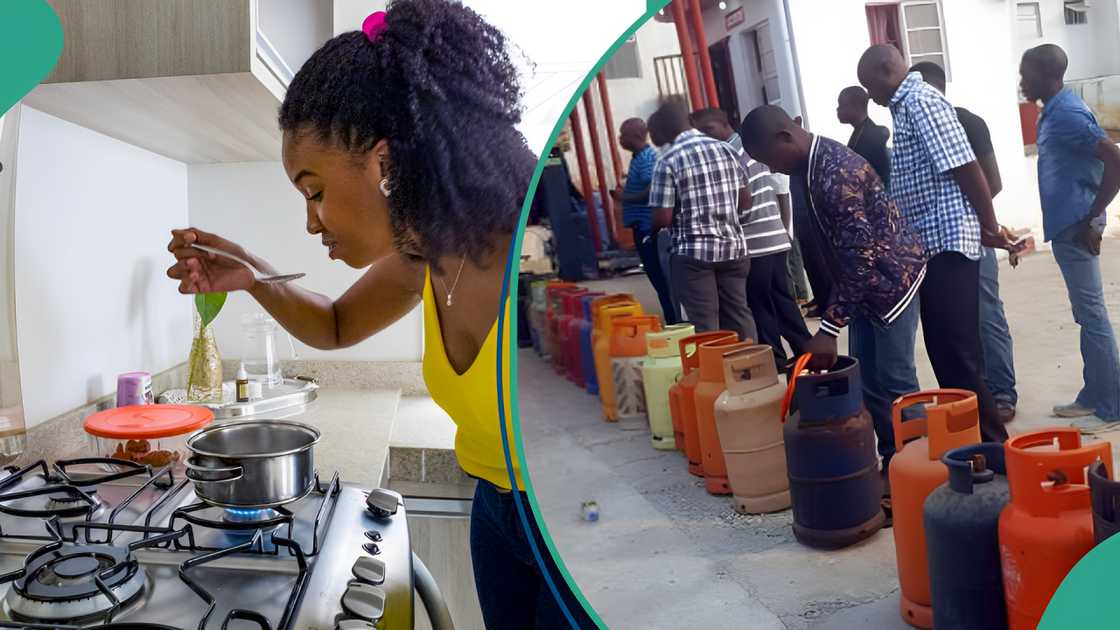
Source: Getty Images
Queues surface at refilling plants
In some areas, queues form at street corners as customers rush to refill their cylinders.
Joke Banjo of Agege lamented that she scoured multiple outlets before stumbling on a supplier in Ojodu willing to refill at ₦1,600/kg.
Adejoke Ibikunle of Ibafo reported waiting in a long line before securing a 6 kg cylinder at ₦1,500, only for the station to shut down sales shortly afterwards due to stockouts.
But behind the price surge lies a deeper industrial crisis.
Link to Dangote Refinery shutdown
Market watchers and industry stakeholders attribute the crisis largely to a supply interruption originating from the Dangote Petroleum Refinery.
In late September, the Petroleum and Natural Gas Senior Staff Association (PENGASSAN) ordered a halt to crude and natural gas deliveries to Dangote in protest of the company's dismissal of over 800 unionised workers.
This stoppage effectively shut down portions of Dangote’s operations and severely constrained LPG feedstock availability.
In turn, marketers say there has been no consistent volume of LPG dispatched to depots for weeks.
Dangote’s role in domestic LPG markets has grown sharply in recent months. Some industry sources contend the refinery aggressively undercut competitors to dominate the supply chain, sidelining alternatives like NLNG imports.
With Dangote effectively the de facto supplier, its disruption unmasked a fragile, monopolistic supply structure.
Expert insight: A crumbling safety buffer
According to energy analyst Yemisi Olagunju, Nigeria is now facing a domestic LPG supply crunch. She warns that without immediate corrective intervention, the crisis could stretch into weeks.
“Often the system survives due to multiple supply sources,” Olagunju notes. “But when one dominant node is starved, such as Dangote in this instance, the entire chain is vulnerable.”
Meanwhile, Oladapo Olatunbosun, President of the Nigerian Association of LPG Marketers (NALPGAM), has been vehement in his criticism of continued LPG exports by International Oil Companies (IOCs) despite a ministerial ban.
He argues that with a limited domestic supply, exporting LPG is unjustifiable.
He urged regulators, notably the Nigerian Midstream and Downstream Petroleum Regulatory Authority (NMDPRA) and the Minister of State for Gas, to enforce compliance among IOCs to build the necessary propane-butane separation facilities and redirect volumes for domestic use.
“The domestic market does not have sufficient volumes of gas, so there is no justification for exporting the product out of the country,” Olatunbosun said, stressing the urgency of robust oversight.
Impacts and Outlook: What's ahead for consumers?
The gas scarcity and price surge come at a time when households are already squeezed by inflation, currency pressure, and rising food and transport costs.
In many cities, consumers are reverting to firewood, charcoal, or kerosene, options that carry health and environmental risks.
While some government actors are exploring emergency imports and regulatory levers to ease shortages, those measures typically require days or weeks to materialise.
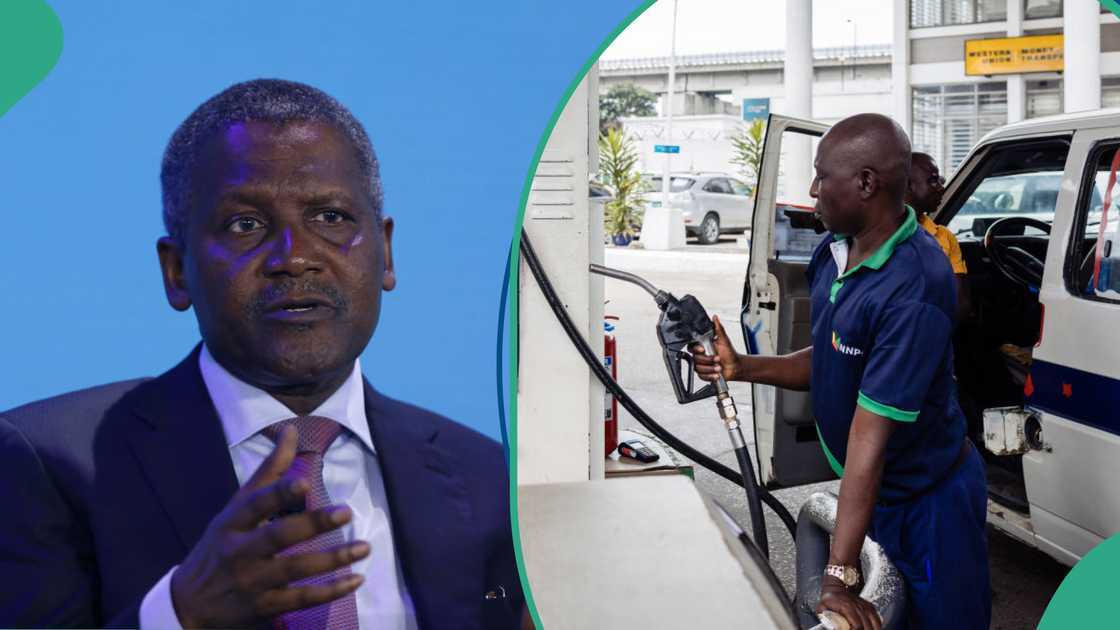
Source: Getty Images
In the interim, Nigeria’s overreliance on a single powerhouse supplier, now hamstrung by labour disputes, has laid bare the fragility of the LPG distribution network.
As Banjo put it, “Cooking gas should not be a luxury; every Nigerian family deserves to cook.”
Cooking Gas Hits ₦17,500 in major cities
Legit.ng earlier reported that the cost of refilling a 12.5kg cylinder of Liquefied Petroleum Gas (LPG), commonly referred to as cooking gas, has skyrocketed across Nigeria.
Prices surged by 34.6% in just one week, rising from ₦12,750 to ₦17,500, as supply bottlenecks triggered by industrial action and delayed distribution disrupted the market.
Checks across major cities revealed that the retail price of 1kg of LPG now ranges between ₦1,350 and ₦1,500, depending on location, placing additional financial pressure on households already grappling with high food and transport costs.
Source: Legit.ng

